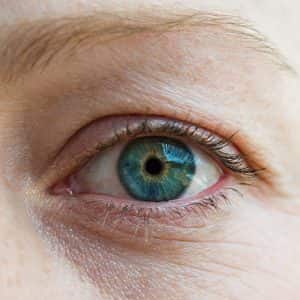 With the allergy season starting earlier this year, due to warmer temperatures across Indiana, how do you know if it is allergies or dry eyes? Allergy season typically starts in March around the Geist area, but this year it seems it came a bit earlier. Many of us won’t complain about this, because we are enjoying the warmer temperatures. Dr. Amy Walden & Associates, your Geist Optometrist has tips about what to do if you are having any symptoms. You should be able to differentiate between allergies and dry eyes.
With the allergy season starting earlier this year, due to warmer temperatures across Indiana, how do you know if it is allergies or dry eyes? Allergy season typically starts in March around the Geist area, but this year it seems it came a bit earlier. Many of us won’t complain about this, because we are enjoying the warmer temperatures. Dr. Amy Walden & Associates, your Geist Optometrist has tips about what to do if you are having any symptoms. You should be able to differentiate between allergies and dry eyes.
What are dry eyes?
This is a condition in which a person doesn’t produce enough tears to lubricate and nourish the eyes. What is in a tear? Tears are a mixture of water, oils, mucus, and antibodies. Tears are used for moisture, lubrication which protect your eyes from infection. Dry eye is a common problem that can become chronic in older adults.
What causes dry eyes?
There are many reasons that dry eyes can occur. Let’s take a look at some of these below:
Age – Unfortunately dry eyes can be a part of the aging process. Tear production diminishes the older you get, commonly after 50. Once you hit 65, there is a higher risk of developing some sort of symptoms of dry eyes.
Gender – Women tend to be more likely to experience dry eye, due to hormonal changes caused by pregnancy and or menopause.
Medical Conditions – Many people who experience rheumatoid arthritis, diabetes and thyroid problems, also experience the symptoms of dry eyes. Inflammation of the eyelids and or surfaces of the eyes are other medical conditions for dry eyes to occur.
Medications – Antihistamines, decongestants, blood pressure medications and antidepressants, are known to reduce the production of tears. Therefore, if you frequently take or are on any of the above medications you may experience dry eyes.
Environment – Dry and windy climates can cause dry eyes. If you smoke or are exposed to smoke, this can be irritating to the eyes. Working and staring at a computer, cellular device or any mobile-friendly device for too long, and not blinking enough can harm your eyes.
Additional Factors – If you have worn contacts for a long period of time, dry eyes can develop. LASIK surgery increases your risk for dry eyes, this can decrease the production of tears.
Health – You eating habits can effect your chance of getting dry eyes. When you eat a diet that is low in vitamin A. Vitamin A is found in carrots, liver, broccoli, etc. Also eating a diet that is low in omega-3 fatty acids, which are found in walnuts, vegetable oils and fish.
Symptoms of Dry Eyes
- A stinging & burning sensation in your eyes
- Scratchy feeling
- Stringy mucus in or around your eyes
- Light sensitivity
- Redness in your eyes
- Feeling as if something is in your eyes
- Difficulty wearing contact lenses
- Night driving is difficult
- Watery eyes
- Blurred vision
- Eye fatigue
Complications from Dry Eyes
Eye infections: There is a strong possibility, if left untreated you might have an increase of eye infections. Since tears protect the surface of your eyes from infection, this may cause more with fewer tears being produced.
Damage to your eyes surface: If you leave your dry eyes untreated, this could lead to inflammation, corneal ulcers and other vision problems.
Difficulty doing everyday activities: Simple things such as reading, writing and even sleeping can become a chore, since your eyes are irritated.
Preparing for an appointment with your Geist Optometrist
Once you have experienced these symptoms, set up an appointment with your Geist Optometrist Dr. Amy Walden & Associates. Prepare a list of questions for your appointment. Make a list of all of your symptoms and the time frame you have had them. Be aware of any life changes that may have occurred. Supply a list of all medications and the history of your health. Jot down any other questions that may be concerning or that you would like your eye doctor to answer.
Common Dry Eye Treatments
Most people with occasional or mild dry eyes can begin to take an over-the-counter eye drops, such as artificial tears. Depending on the severity and the reason for your dry eyes, your Geist Optometrist may look at other treatments to treat your individual needs. Some treatments focus on managing the condition, factors that may cause it and or reversing it. Many medications can assist with dry eyes and or even eye inserts may be another approach. Once you meet with your Geist Optometrist to consult your needs, treatment will be determined.
There are many reasons that someone can experience dry eyes, but this can be managed. With our experience, we can get your eyes back on track. Don’t let dry eyes become a problem, contact your Geist Optometrist, Dr. Amy Walden & Associates today to help with treatment and to get your life back to normal.
